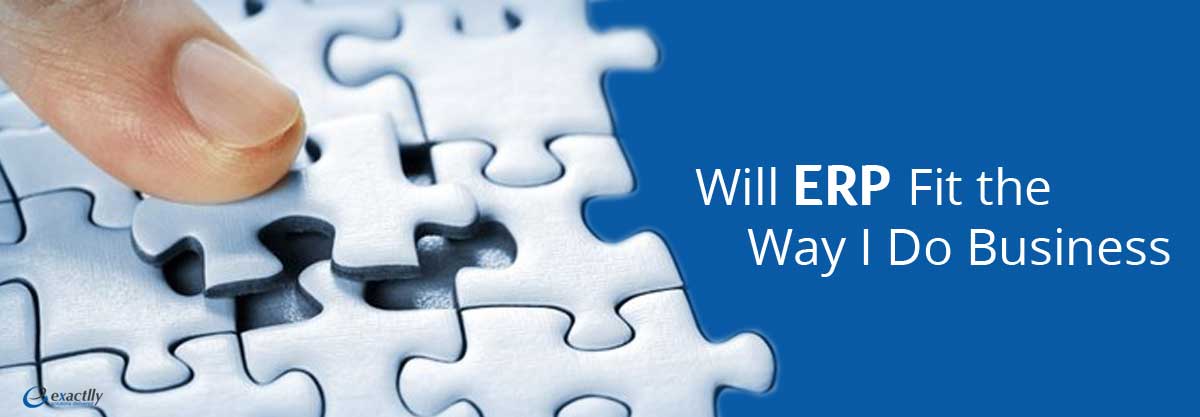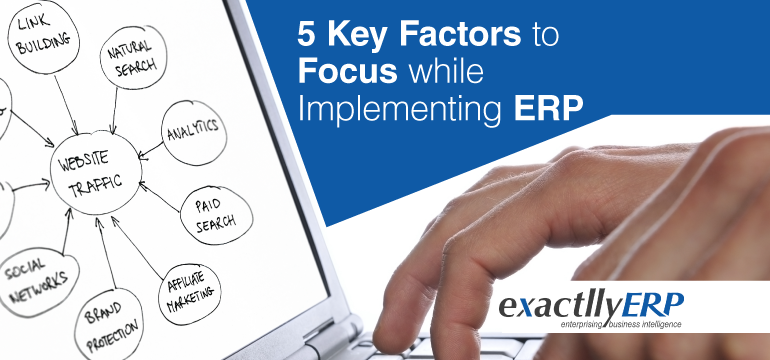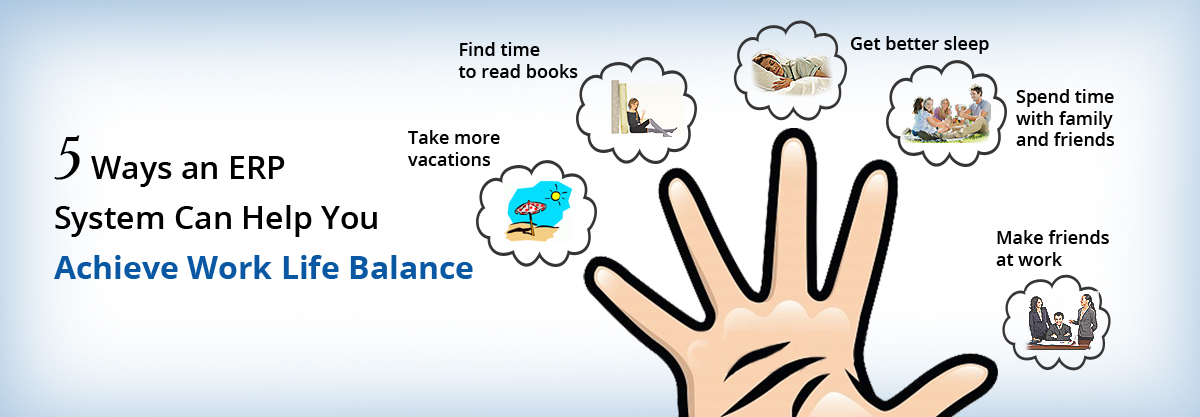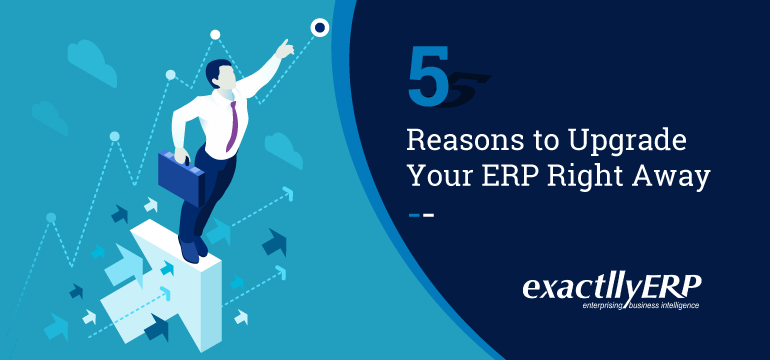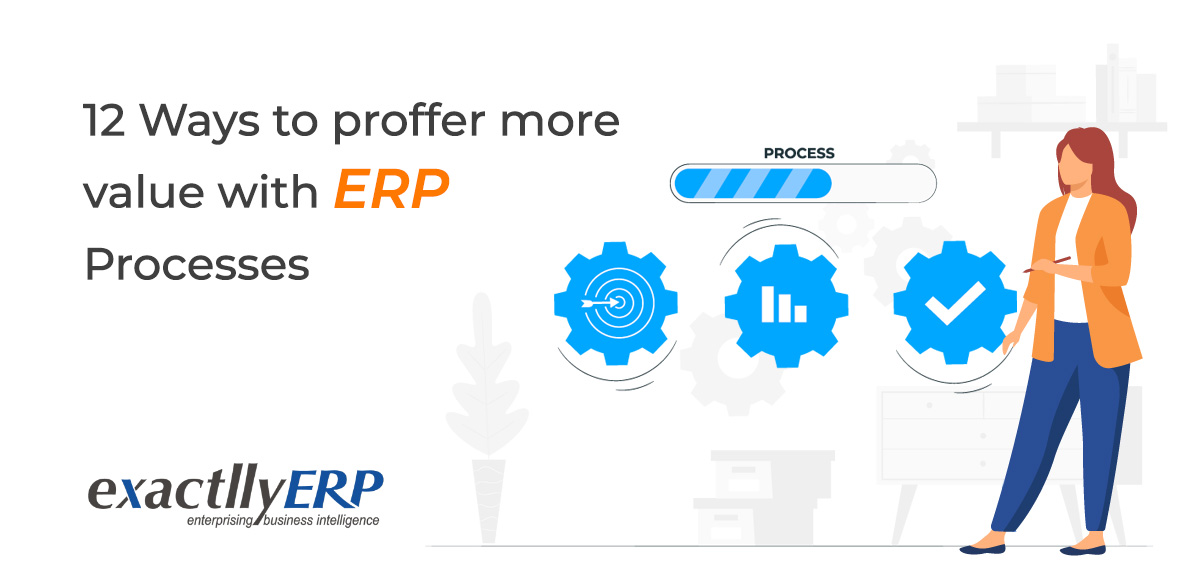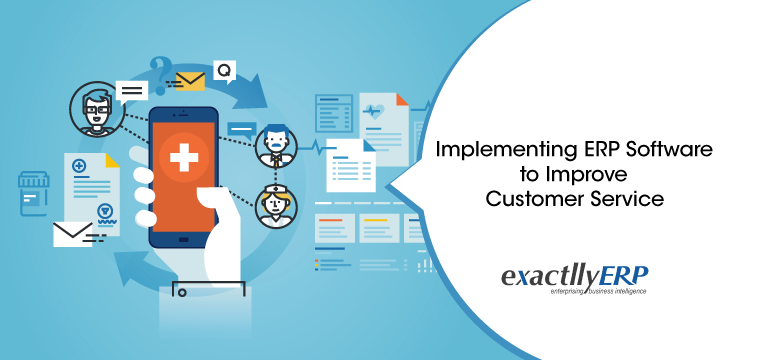10 Top Requirements for Today’s Businesses and How ERP Helps Meet Them

Business requirements
Anything that is new always causes what psychologists call “stress”. Stress can be negative or positive. Positive stress is known as “eustress”, whereas negative stress is known as “distress”. Implementing ERP should bring about eustress, rather than distress. Eustress helps you to make positive changes, which includes adopting ERP in a productive manner. ERP brings about a massive shift in your organization by making it systematic and meeting all your business requirements. But before you implement ERP, you must carefully assess the need to implement it.
Let us take a look at 10 situations that today’s businesses encounter and how ERP can solve those problems
- Minimize project failure
While cut-throat competition is making difficult for the companies to survive in the market, customer expectations are growing bigger than ever. In such a scenario, companies do not afford to disappoint their customers through constant project failures. Failed projects leave a blot on the company’s brand image raising a question on their credibility and their ability to take on challenges. There could be a number of reasons for project failure. But quite often, project failures are caused due to poor visibility in the operations and inability of the senior management to foresee crisis.
How ERP helps:
ERP software with its advanced approach allows the organization to have a better control on the critical parameters driving the project. Such parameters include vendor management, changing customer requirements, optimum allocation of resources etc.
- Look at the bigger picture
Businesses fail to grow if they are only focused on short-term gains. A true businessman will never be satisfied with the existing capability of the company. He will always want to expand its operations and customer base. Besides that, incorporating new ideas and innovation in technology will further drive the business forward.
How ERP helps:
ERP system helps you to analyze your data in a transparent manner to take a comprehensive approach towards the business. It will guide your way through development and assist in strategic decision making. Furthermore, senior management can generate reports, gain critical insight and be prepared for the changing business environment.
- Cost saving
There are certain inevitable cost like rising cost of raw material, labor etc which add to your cost of production. But simultaneously there is cost associated with wasteful business processes. We need to identify such costs and remove them from our system.
How ERP helps:
ERP is designed to streamline your existing business processes and add new processes to make the system efficient and cost-saving. For instance, in case of manufacturing, a faulty assembly line will lower your production capacity. ERP software customized for manufacturing identifies weak spots in the line and advocates a better way of performing the same process.
- Collaboration and productivity
Collaboration is the key to success in any business. The employees should work as a single unit to achieve a common business goal. Having multiple software for different needs create confusion and makes it harder for the employees to collaborate. Information is scattered across the organization in different systems.
How ERP helps:
ERP stores information in a centralized data storage system. Each department can access the information input by another department. It creates more inter-departmental connect. This empowers your departments to stay well-informed and act accordingly. For instance, the sales team will take orders depending upon the real-time status of production and vice-versa.
- Customer satisfaction
The top most priority of business is customer satisfaction. A satisfied customer will do repeated purchase and spread positive word of mouth. We often note that customer complaints go unheard in organizations and they are forced to abandon ties. Customer satisfaction lies in the value offered by your product or service, convenience of doing business with your organization and knowledge gained by working with you.
How ERP helps:
The customer relationship module in ERP has many advantages. It enables the customers to track their order status, offer a simplified billing system and give product feedback. This, in turn, allows you to incorporate the desired changes and offer improved service.
- Financial control
Financial health of the company reflects its ability to negotiate and strike better deals. A company in good financial health will look forward to expand and develop rather than struggle to keep the existing operations on. Sound financial health even helps in getting the investors on board.
How ERP helps:
The financial management module in ERP manages accounts of your company. It shows a detailed money inflow and outflow. Furthermore, it maintains company’s balance sheet, P&L A/c, creditors and debtors account. It facilitates the senior management in taking major financial decisions and take corrective measures.
- Change management
Businesses operate in a dynamic environment. Various factors like market volatility, fluctuations in raw material price, government regulations, labor market, new technology, emerging competitors etc force your company to adopt a new strategy and measures.
How ERP helps:
ERP systems are sensitive to these changes. They help you to incorporate these changes and change the processes accordingly. All these factors can be taken into account while planning and your company will be flexible enough to manage these changes.
- Risk taking ability
An organization is judged by its capability to take risks. An organization which does not venture into new technology and adapt to the changing needs of their customers fail miserably. Type of risk can vary depending upon the industry. For instance, a manufacturing company is exposed to mechanical, chemical or thermal risk, while an IT company is exposed to malware, hacking or virus.
How ERP helps:
Advanced ERP packages are designed to assess the level of risk in an organization. ERP software helps in preparing a risk mitigation plan or accident handling plan well in advance. It documents all the necessary actions that need to be taken when the need arises.
- Increase profits
Increase in bottom line is the most desired factor for an organization. If the profit margins are increased at the expense of quality, an organization is bound to suffer a blow sooner or later, thereby affecting goodwill of the company.
How ERP helps:
While ERP does not contribute to your profits directly, its proper implementation gives you assured returns in the long run. ERP manages your manpower, machinery and money. When all the three factors are combined to deliver optimized business processes, your business generates maximum returns from the available resources. Ultimately, you notice a hike in your profit margins.
- Product quality
Product or service quality is of prime importance to satisfy the customer. It is common to note that organizations fail to identify the defect in their product or failure in their service delivery. With the total quality management module in ERP, you can be sure that your product carries minimum defect.
How ERP helps:
ERP identifies the flaws in the production stage so that the effect of damage is mitigated. In addition to that, it ensures there is commitment from top leadership and employees to achieve maximum product quality. There are a wide variety of characteristics in ERP that ensure a superior product quality during test, inspection and maintain an extensive history to deal with recurring problems.
Conclusion
An ERP system is fully capable to meet the needs of a modern business. It gives you complete visibility into all departmental processes. It is a single software that maintains a coherent workflow in the organization.
Most ERP systems follow a modular approach which means you can choose the module required by your organization and purchase add-ons later. It can integrate seamlessly with e-commerce platforms and other APIs like bar-code reader. It offers you a secure and centralized data storage system. Moreover, it is capable of handling globally dispersed business. By installing an ERP, you can avoid distress and use eustress to your advantage!

